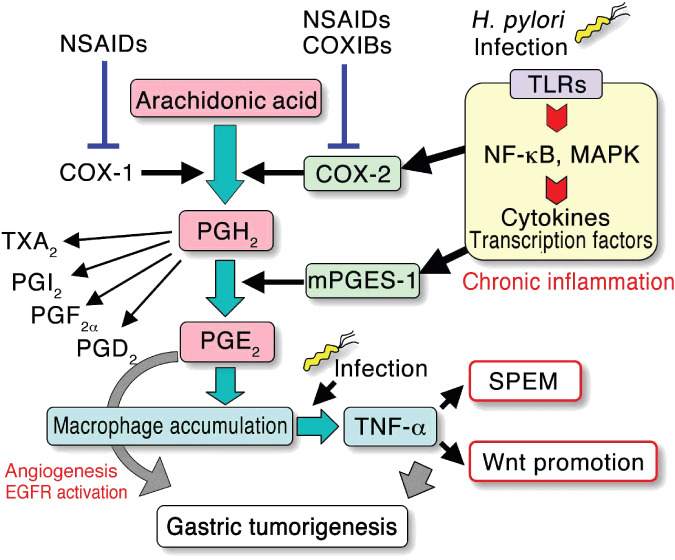Figure 1.

Schematic presentation of arachidonic acid metabolism in the context of gastric tumorigenesis. The expression of cyclooxygenase (COX)‐2 and microsomal PGE synthase‐1 (mPGES‐1) is induced by Helicobacter pylori (H. pylori)‐associated inflammatory responses. The simultaneous expression of both COX‐2 and mPGES‐1 leads to induction of the prostaglandin PGE2 pathway, which results in macrophage accumulation. These macrophages are activated by infectious stimuli, resulting in the induction of tumor necrosis factor (TNF)‐α‐dependent SPEM development and the promotion of Wnt signaling, which may contribute to gastric tumorigenesis. The induction of angiogenesis and activation of epidermal growth factor receptor (EGFR) signaling are also possible mechanisms of PGE2 in tumorigenesis. COXIBs, COX‐2 selective inhibitors; NF‐κB, nuclear factor‐κB; NSAIDS, nonsteroidal anti‐inflammatory drugs; SPEM, spasmolytic polypeptide/TFF2‐expressing metaplasia; TLRs, Toll‐like receptors.
